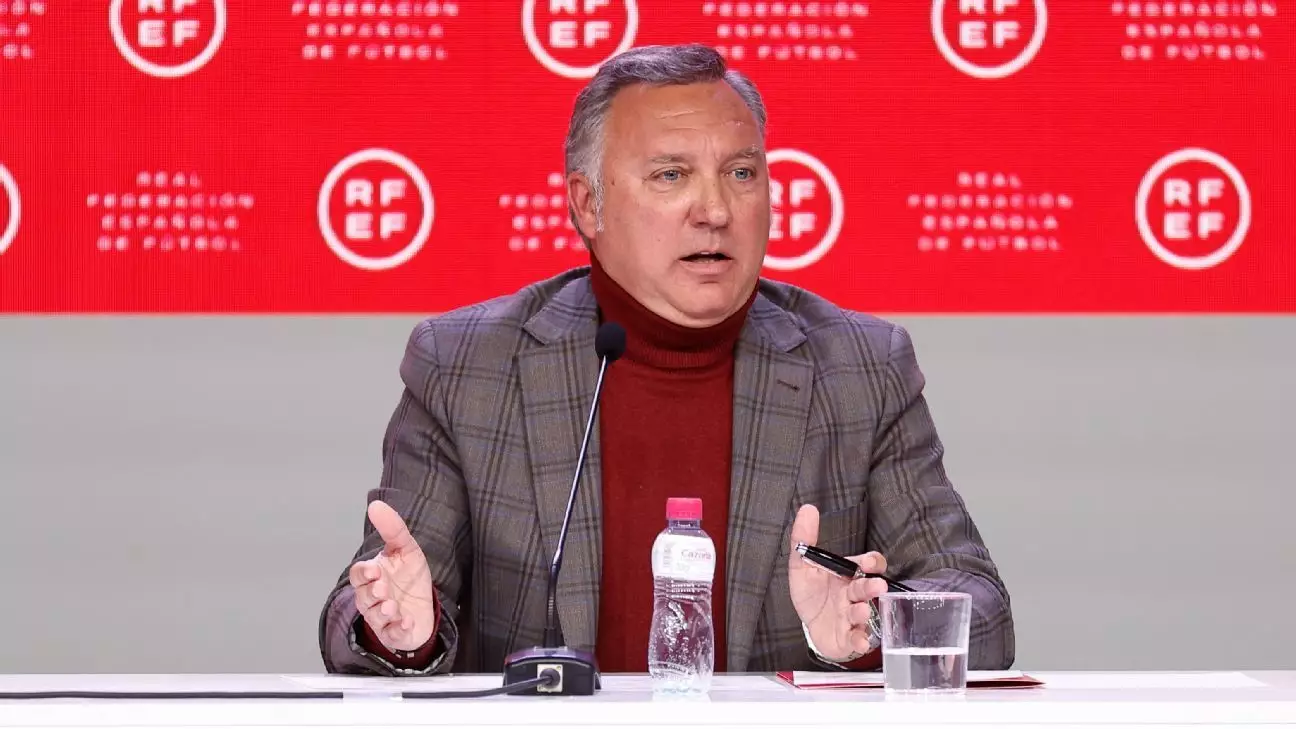The world of football, particularly in Spain, is rife with drama and passionate debates, and the latest conflict involving Real Madrid and the refereeing community has taken center stage. The ongoing tensions reflect not only the high stakes of competitive sports but also raise questions about the integrity of officiating within one of the world’s most-watched leagues.
Real Madrid, one of the most illustrious clubs in football history, is known for its fierce resolve and unyielding standards. Recently, the team expressed ire regarding the officiating during their narrow 1-0 loss against Espanyol. This match has ignited a storm of criticism aimed at the referees, particularly concerning decisions that many in Madrid believe were critical to the game’s outcome. The club’s board went so far as to send an open letter to the Spanish Football Federation (RFEF) and the Sports Ministry (CSD), fueling the fires of discontent. Their letter made pointed references to missed calls, such as failing to eject Espanyol’s Carlos Romero from the match, who went on to score the decisive goal. Furthermore, they spotlighted an earlier disallowed goal from rising star Vinícius Júnior, demanding transparency through the release of audio recordings from that match.
In response to these allegations, Luis Medina Cantalejo, the head of Spain’s Technical Committee of Referees (CTA), asserted that his referees are not corrupt. Instead, he acknowledged potential shortcomings in their officiating abilities. The stark difference between incompetence and corruption is a critical focal point of this entire debate. Madrid’s accusations suggest a deep-level manipulation that undermines the fairness of competition—a serious claim that, if substantiated, could alter the landscape of Spanish football.
Medina’s insistence that referees operate with honor and integrity resonates with many who believe that human error is an inherent aspect of the game. He lamented that despite the repeated criticisms, match officials arrive with the intention of executing their roles fairly and without mala fides. This presents an arduous challenge: while accountability among officials is paramount, one must also consider the emotional and psychological pressures referees face during high-stakes matches.
Underneath the current simmering tensions lies the shadow of the broader Negreira case, a criminal investigation exposing alleged payments made by Barcelona to a former vice-president of the CTA. This scandal has further complicated perceptions of officiating in La Liga and has influenced the narrative surrounding Real Madrid’s complaints. With allegations of bias and impropriety swirling through the league, it is understandable why fervent supporters and club officials might perceive a skewed playing field.
Madrid’s president, Florentino Pérez, has been vocal in advocating for changes to improve officiating standards, including the intriguing suggestion of importing English referees to manage the matches in Spain. This proposal raises questions about the suitability and cultural compatibility of referees from a vastly different footballing context—could this be a feasible solution?
Amid all the controversy, public reactions reflect a diverse range of opinions. Former Barcelona and Spanish national team star Gerard Piqué recently suggested that Real Madrid’s barrage of complaints serves as a distraction from their on-field performance, reinforcing the narrative that perceived injustices are often weaponized to redirect attentiveness. This assertion illustrates the long-standing tradition of clubs leveraging public sentiment to bolster their positions, especially in the face of adversity.
In the rich tapestry of Spanish football, refereeing controversies are but a recurrent theme, as clubs navigate the emotional highs and lows inherent in competition. The interplay between fairness, accountability, and pride raises a pertinent question: how can the governing bodies instill confidence among clubs and fans that officiating can be both transparent and just?
As the season unfolds, the battle for integrity in officiating continues amidst accusations and counterclaims. For the sake of Spanish football’s reputation and the trust of its loyal supporters, a concerted effort toward reform and enhancement of the refereeing framework is crucial. Both clubs and officials must strive for a more harmonious relationship that safeguards the essence of competition while acknowledging the multifaceted nature of this beautiful sport. Moving forward, it is vital for all stakeholders to adopt a collaborative mindset—one that prioritizes quality, accountability, and, most importantly, the spirit of the game.

